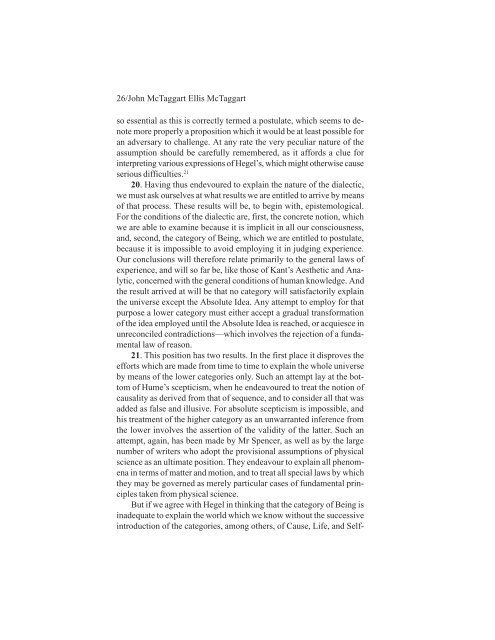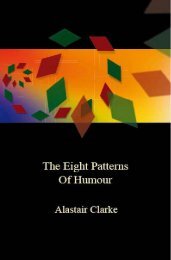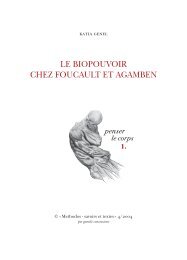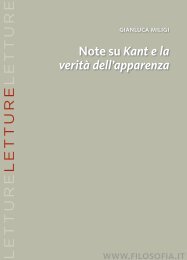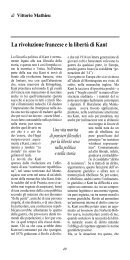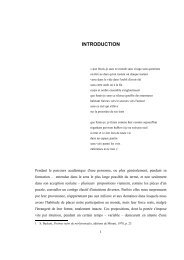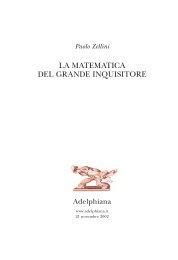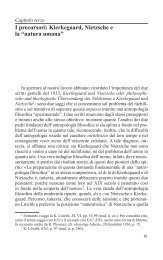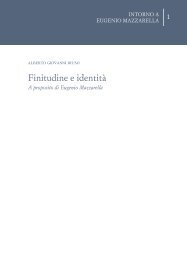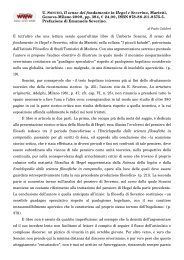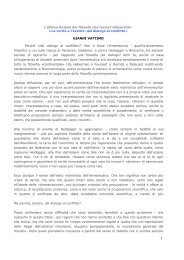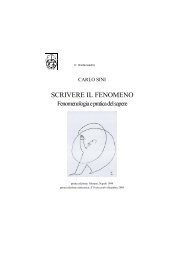McTaggart, Studies in the Hegelian Dialectic
McTaggart, Studies in the Hegelian Dialectic
McTaggart, Studies in the Hegelian Dialectic
You also want an ePaper? Increase the reach of your titles
YUMPU automatically turns print PDFs into web optimized ePapers that Google loves.
26/John <strong>McTaggart</strong> Ellis <strong>McTaggart</strong><br />
so essential as this is correctly termed a postulate, which seems to denote<br />
more properly a proposition which it would be at least possible for<br />
an adversary to challenge. At any rate <strong>the</strong> very peculiar nature of <strong>the</strong><br />
assumption should be carefully remembered, as it affords a clue for<br />
<strong>in</strong>terpret<strong>in</strong>g various expressions of Hegel’s, which might o<strong>the</strong>rwise cause<br />
serious difficulties. 21<br />
20. Hav<strong>in</strong>g thus endevoured to expla<strong>in</strong> <strong>the</strong> nature of <strong>the</strong> dialectic,<br />
we must ask ourselves at what results we are entitled to arrive by means<br />
of that process. These results will be, to beg<strong>in</strong> with, epistemological.<br />
For <strong>the</strong> conditions of <strong>the</strong> dialectic are, first, <strong>the</strong> concrete notion, which<br />
we are able to exam<strong>in</strong>e because it is implicit <strong>in</strong> all our consciousness,<br />
and, second, <strong>the</strong> category of Be<strong>in</strong>g, which we are entitled to postulate,<br />
because it is impossible to avoid employ<strong>in</strong>g it <strong>in</strong> judg<strong>in</strong>g experience.<br />
Our conclusions will <strong>the</strong>refore relate primarily to <strong>the</strong> general laws of<br />
experience, and will so far be, like those of Kant’s Aes<strong>the</strong>tic and Analytic,<br />
concerned with <strong>the</strong> general conditions of human knowledge. And<br />
<strong>the</strong> result arrived at will be that no category will satisfactorily expla<strong>in</strong><br />
<strong>the</strong> universe except <strong>the</strong> Absolute Idea. Any attempt to employ for that<br />
purpose a lower category must ei<strong>the</strong>r accept a gradual transformation<br />
of <strong>the</strong> idea employed until <strong>the</strong> Absolute Idea is reached, or acquiesce <strong>in</strong><br />
unreconciled contradictions—which <strong>in</strong>volves <strong>the</strong> rejection of a fundamental<br />
law of reason.<br />
21. This position has two results. In <strong>the</strong> first place it disproves <strong>the</strong><br />
efforts which are made from time to time to expla<strong>in</strong> <strong>the</strong> whole universe<br />
by means of <strong>the</strong> lower categories only. Such an attempt lay at <strong>the</strong> bottom<br />
of Hume’s scepticism, when he endeavoured to treat <strong>the</strong> notion of<br />
causality as derived from that of sequence, and to consider all that was<br />
added as false and illusive. For absolute scepticism is impossible, and<br />
his treatment of <strong>the</strong> higher category as an unwarranted <strong>in</strong>ference from<br />
<strong>the</strong> lower <strong>in</strong>volves <strong>the</strong> assertion of <strong>the</strong> validity of <strong>the</strong> latter. Such an<br />
attempt, aga<strong>in</strong>, has been made by Mr Spencer, as well as by <strong>the</strong> large<br />
number of writers who adopt <strong>the</strong> provisional assumptions of physical<br />
science as an ultimate position. They endeavour to expla<strong>in</strong> all phenomena<br />
<strong>in</strong> terms of matter and motion, and to treat all special laws by which<br />
<strong>the</strong>y may be governed as merely particular cases of fundamental pr<strong>in</strong>ciples<br />
taken from physical science.<br />
But if we agree with Hegel <strong>in</strong> th<strong>in</strong>k<strong>in</strong>g that <strong>the</strong> category of Be<strong>in</strong>g is<br />
<strong>in</strong>adequate to expla<strong>in</strong> <strong>the</strong> world which we know without <strong>the</strong> successive<br />
<strong>in</strong>troduction of <strong>the</strong> categories, among o<strong>the</strong>rs, of Cause, Life, and Self-


